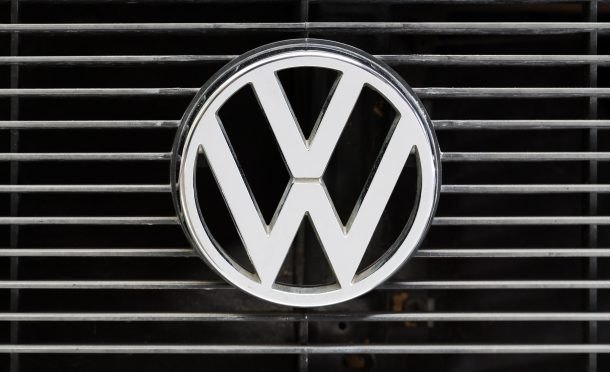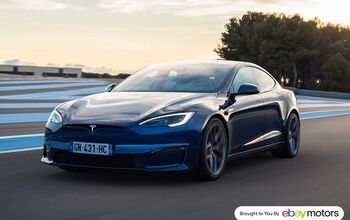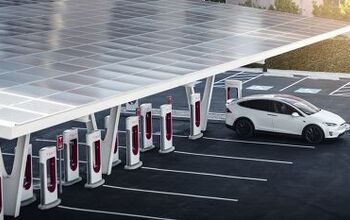Volkswagen Won't Sell Assets to Cough Up Dieselgate Capital, Blames Union Leaders

Financial analysts and industry experts have been expecting Volkswagen to begin selling assets to help cope with the cost of its diesel emissions cheating scandal. The penalty for its deception may have already reached $24.2 billion, and German lawsuits could tack on another $8 billion.
However, Europe’s largest automaker says it’s not interested in selling off properties to recoup losses associated with the scandal. It has another plan to rake in the cash.
VW says it’s more interested in focusing on the shift into electrification and mobility services. Cutting up assets for sale is not a good long-term plan for the company, according to corporate strategy head Thomas Sedran. While that may not be his personal assertion, it is a contention among the board members who forced the decision. Sedran said labor unions don’t want properties moved around, citing the group’s strong overall financial performance in spite of the scandal.
They may have a point.
Even Ducati, which is owned by Automobili Lamborghini S.p.A. and subsequently Volkswagen AG, has grown quite a bit since it was acquired by the company in 2012. Ducati has expanded from 1,197 employees to 1,558 and has remained profitable through last year. With the notable exception of Škoda, that’s been the case with of most of VW’s subsidiaries.
While the Italian motorcycle company seems like a good property to shift, mainly because so much of its current value is wrapped up in the Ducati name and there is so little product overlap, it still cleared $863 million in revenue last year. That represents a 4.1-percent increase over 2015 and $54 million in profits. It isn’t losing Volkswagen any money.
In fact, the thing hurting the company most is Volkswagen itself — especially its diesel division. Distancing itself from highly regulated internal combustion engines may be enough for it to turn a corner and keep from upsetting the unions.
“It’s much more important to discuss which new business fields the company will enter. Divestments are less relevant,” he said in an interview with Reuters. “Big decisions like how to expand or optimize the business portfolio of a global company need time and have to be developed by consensus. For Volkswagen, the topic of the business portfolio is very important but not time critical.”
Volkswagen is still considering the potential value of selling Ducati and transmission manufacturer Renk, though. Sources reference five bidders in the running to acquire Ducati, including Italy’s Benetton family, which owns a number of Italian roadside restaurants and a significant portion of the Autostrade they occupy. Offers on Ducati range from $1.5 to $1.8 billion.
“Top management has a clear idea of what belongs to core business and what doesn’t,” Sedran explained. “It is now a question of how the supervisory board will assess this and what one wants to do.”
The corporate strategy head didn’t say it, but it sounds like executives want non-essential subsidiaries gone while labor leaders, which are also on the board, prefer for them to stay. But Sedran stated the obvious by adding the money to pay for the emissions scandal has to be found somewhere.
“So it’s perfectly plausible that we consider whether the time may have come to find a more suitable owner for certain business areas,” he said.

A staunch consumer advocate tracking industry trends and regulation. Before joining TTAC, Matt spent a decade working for marketing and research firms based in NYC. Clients included several of the world’s largest automakers, global tire brands, and aftermarket part suppliers. Dissatisfied with the corporate world and resentful of having to wear suits everyday, he pivoted to writing about cars. Since then, that man has become an ardent supporter of the right-to-repair movement, been interviewed on the auto industry by national radio broadcasts, driven more rental cars than anyone ever should, participated in amateur rallying events, and received the requisite minimum training as sanctioned by the SCCA. Handy with a wrench, Matt grew up surrounded by Detroit auto workers and managed to get a pizza delivery job before he was legally eligible. He later found himself driving box trucks through Manhattan, guaranteeing future sympathy for actual truckers. He continues to conduct research pertaining to the automotive sector as an independent contractor and has since moved back to his native Michigan, closer to where the cars are born. A contrarian, Matt claims to prefer understeer — stating that front and all-wheel drive vehicles cater best to his driving style.
More by Matt Posky
Latest Car Reviews
Read moreLatest Product Reviews
Read moreRecent Comments
- Merc190 I would say Civic Si all the way if it still revved to 8300 rpm with no turbo. But nowadays I would pick the Corolla because I think they have a more clear idea on their respective models identity and mission. I also believe Toyota has a higher standard for quality.
- Dave Holzman I think we're mixing up a few things here. I won't swear to it, but I'd be damned surprised if they were putting fire retardant in the seats of any cars from the '50s, or even the '60s. I can't quite conjure up the new car smell of the '57 Chevy my parents bought on October 17th of that year... but I could do so--vividly--until the last five years or so. I loved that scent, and when I smelled it, I could see the snow on Hollis Street in Cambridge Mass, as one or the other parent got ready to drive me to nursery school, and I could remember staring up at the sky on Christmas Eve, 1957, wondering if I might see Santa Claus flying overhead in his sleigh. No, I don't think the fire retardant on the foam in the seats of 21st (and maybe late 20th) century cars has anything to do with new car smell. (That doesn't mean new car small lacked toxicity--it probably had some.)
- ToolGuy Is this a website or a podcast with homework? You want me to answer the QOTD before I listen to the podcast? Last time I worked on one of our vehicles (2010 RAV4 2.5L L4) was this past week -- replaced the right front passenger window regulator (only problem turned out to be two loose screws, but went ahead and installed the new part), replaced a bulb in the dash, finally ordered new upper dash finishers (non-OEM) because I cracked one of them ~2 years ago.Looked at the mileage (157K) and scratched my head and proactively ordered plugs, coils, PCV valve, air filter and a spare oil filter, plus a new oil filter housing (for the weirdo cartridge-type filter). Those might go in tomorrow. Is this interesting to you? It ain't that interesting to me. 😉The more intriguing part to me, is I have noticed some 'blowby' (but is it) when the oil filler cap is removed which I don't think was there before. But of course I'm old and forgetful. Is it worth doing a compression test? Leakdown test? Perhaps if a guy were already replacing the plugs...
- Crown No surprise there. The toxic chemical stew of outgassing.
- Spamvw Seeing the gear indicator made me wonder when PRNDL was mandated.Anyone?Anyone?1971


































Comments
Join the conversation
Cry me a river of tears.
Seat and Skoda are expendable, although I don't know if anyone would actually want to buy them. I'm sure Lambo and Bugatti are likely money losers and only in the portfolio for Halo purposes, but perhaps someone from China would pull the trigger. Bentley is probably the most valuable brand they have that wouldn't put a big dent in their annual sales and profits it is was sold - perhaps Tata would like another British brand?